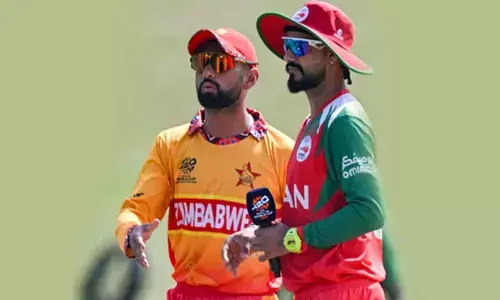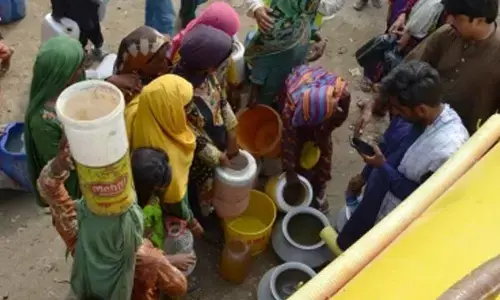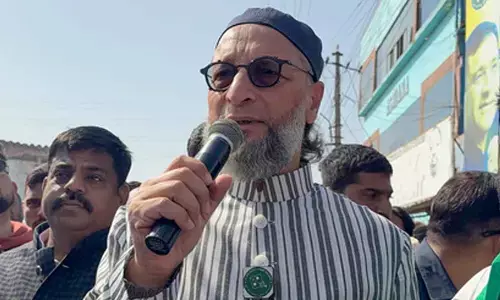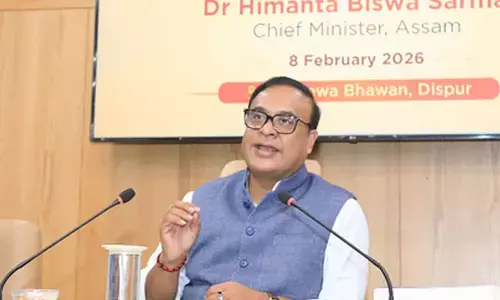MyVoice is to lift up the voices and experiences

MyVoice is to lift up the voices and experiences
The incomparable festival of lights is here…
Let's all hail Deepavali,
The festival of lights
That lights all hearts
with happiness,
Rows of lamps embellishing
And illumining all houses,
Grown-ups wearing festive glows
Over their countenances,
Eyes twinkling with
festive raptures,
Hearts bouncing in festive
excitements,
Children and youth
grab festivities
And savor festive delicacies,
Every one turns a devotee
of the Goddess
Of wealth,offering prayers,
Seeking Her blessings
And boons of happiness
Prosperity and peace;
Fire-works- sparklers, flower-pots,
Rockets lit jubilantly by folks,
The pitch gloom
of Amavasya night
Dissolves into vast illumination
Of the sky and the earth,
Crackers bursting, echoing
The whole environment;
Not festive celebrations,
Not festive joys,
Not festive delicacies
Deepavali alone brings,
Deepavali symbolises
The triumph of light
Over darkness,
The victory of the good
Over the wicked,
And dispelling of ignorance
Lighting of knowledge;
Let's welcome the Festival
Of lights into our lives,
Celebrate Deepavali
Carefully, happily
and peacefully
In Eco-friendly environment
With no mishaps
and no disasters.
Dr Venugopala Rao Kaki, Kakinada
Go green, this Diwali…
It is time the people celebrated Diwali with green crackers. This year Diwali is being celebrated on Sunday and Monday across the nation. In these celebrations firing of crackers is must as Diwali is celebrated as a symbol of killing of demon Narakasura.
However, firing of crackers has become one of the major events be it election rallies or sports festival or national festivals or victory rallies. But firing of high decibel crackers effects both environment and bio- sphere.
In fact, the USA and Britain have already switched over to green crackers that emit more flowers and produce less sound. Italy has attracted the global attention by manufacturing low sound crackers. Even in our country at the direction of the apex court, following a writ petition of parents of two six- month- old children and a 14- month infant in Delhi in 2018 banned high decibel crackers.
Indeed the Delhities are facing typical problem as they are engulfed virtually in smoke during September- October. During which Delhi is filled with smoke from Haryana, Punjab and UP as the farmers in these States burn stubs of wheat crop to get ready their fields for the next crop besides smoke of Diwali crackers as it falls in October.
So, there are 1000 micrograms dust particles in the air of Delhi in the season which is more than 20 times of normal period. However the stubs burning greatly reduced due to subsidised supply of happy seeders, grass choppers etc.
So,the need of the hour is reducing pollution from celebration of Diwali. As conventional crackers contain harmful materials like sulphur, barium, potassium, aluminum etc So, people who breath the smoke emit from conventional crackers are prone to serious health hazards .
So, we must celebrate Diwali with green crackers as they are made of oxidants and solvents, they control dust particles into the air and sound respectively. People who celebrate Diwali must mind that their crackers should not release more than 50 micrograms dust particles into the air and produce more than 120 decibel sound.
Pratapa Reddy Yaramala, Tiruvuru
When the story can't be killed, kill the storyteller…
Independence and fearless thought, usually considered to be invaluable journalistic attributes, are now becoming a serious even dangerous hindrance for media professionals.
If journalists in prime locations and metropolitan cities are under attack, those away from media and public glare, spread out in small towns and villages, are preyed upon with far greater ease. A culture of bullying, abusing, threatening and killing journalists is now a reality in Andhra Pradesh as in many other countries.
The deadly attacks on several vernacular journalists in the recent past in Andhra Pradesh have taken a toll not just on individuals but also on journalism as a profession. Latest trend is when the story can't be killed, the storyteller is silenced.
It's an old wine in the new bottle style of the present dispensation going after what is perceived as the opposition media.
However, it is nothing, but the government's order is highlight of the intolerance to criticism. Analysts and media organisations fear that the order could be used to stifle freedom of expression or go after journalists who are critical of the government.
Media freedom in Andhra Pradesh seems to be slowly but surely seizing going by the way banning of TV channels and coercing cable operators into suspending the telecast of the same channels in some parts of the state.
In the two Telugu states, print and electronic media is largely polarised along political lines, eclipsing the space for independent media. While some outlets are directly owned by leaders of mainstream parties, others are accused of receiving patronage from a particular political party.
While Jagan and his Telangana counterpart have formed an unlikely 'alliance' during the failed 'federal front' experiment, their attitudes towards the media are also well aligned. During his first term, KCR infamously asked the media to "be careful or else we will bury you 10 kilometres (under the earth)".
Like Jagan, he also imposed an unwritten ban on the TV9 and ABN news channels. In Telangana, barring three channels and two newspapers, the media is tightly under KCR's grip, giving a decent burial to critical reportage. If the recent Andhra Pradesh government is anything to go by, Jagan may soon want the same result.
Instead of patronising the attackers on journalists, government should lend an ear to the genuine grievances facing by the whistle-blowers often working in small towns and villages, grapple with a number of issues.
Most of them do not have any steady source of income because they work mostly as stringers, contributors and agents. Being closer to the ground and in direct access of their reporting subjects, they face enormous challenges.
More often than not, there is pressure to not report what should ideally be reported, and sometimes, not buckling under the pressure could mean putting their lives in danger. Let's not forget that good journalism exists not because of 'star reporters and anchors' but because of the countless nameless, faceless non-English stringers and local reporters working on the ground, giving us leads about stories and developments.
So, there is an urgent need to call out the forces responsible for building up the prevailing atmosphere. Government should know defending journalistic freedom as well as couriers of information is one of the hallmarks of any civilised and honest society.
Javvadi Lakshmana Rao, Visakhapatnam
BJP given a run for its money
Though the assembly results in Maharashtra saw BJP-Shiv Sena retain power, the Haryana verdict gives a clear message to BJP not to get complacent but to focus on economy and local issues.
As new entrant JJP led by the Dushyant of the Chautala dynasty coming out with a stunning win in 10 seats has resulted in hung assembly in Haryana. Similarly, there were not much gains for BJP in the bypolls held in various states.
Also, a slight dip in seats as well in strike rate for BJP in Maharashtra and Haryana has not only belied the hopes of a landslide verdict in these states but also sent alarm bells ringing that BJP's priorities are to set the house in order and improve its performance on the economy which has slowed down considerably creating panic in the common man in the first place.
Given all this, it is imperative that Narendra Modi concentrate more on the ways and means to bring economy on the track and speak about local issues which is a big factor influencing the electorates in the assembly polls instead of dwelling at length on NRC, 370 etc. and other national issues.
In fact, a passing reference on national issues is more than enough to make the local voters understand the magnitude of the problem.
On the other hand, when congress campaign was a low key, it is the old veteran warhorse Sharad Pawar and Bhupinder Hooda taking the lead to campaign intensively could help NCP and congress put up a reasonably good show by winning more seats than in 2014.
Despite BJP having come out in its defence that they are the single largest party in Haryana and winner in Maharashtra, yet it is the hard bargain with JPP that enabled to lead the state once again.
All in all, there is a strong message to BJP to be more organised, shun rhetoric and focus more on economy in order to stay in the race for future polls in the states.
K R Srinivasan, Secunderabad
Privatisation alone cannot cure PSB woes
That PSBs are, now, facing worst ever crisis is a fact acknowledged by all people. Some serious measures like mergers are afoot in order to invigorate the health of PSBs to enable them to play vital role in strengthening the economy.(Fruitless exercise of Bank Mergers-THI, October 26).
The writer Dr. Jhunjhunwala puts the entire blame on inefficiency and corruption of employees and prescribed privatisation as panacea for all the ills now plaguing the PSBs which is neither comprehensive nor convincing.
The corruption in PSBs begins at the practice of heads of PSBs being appointed on the basis of their connections to ruling political class rather than their competence in their profession. Naturally, these heads of PSBs succumb to political pressures which faclitates big industrial and corporate houses being unduly favoured with credit facilities running in to thousands of crores of rupees and these large borrowers would subsequently be categorised as NPAs and would be written off in due course because of nexus between unscrupulous politicians and unethical corporate tycoons.
If corruption is effectively checked at this level and all employees are put under a mechanism of strong vigilance with harsh punishments to offenders, corruption can't raise its ugly head in PSBs. Blaming lower rung employees for all corruption in PSBs is nothing but obfuscating the chicanery going on at the highest level.
The writer opined that inefficiency of employees is mainly contributing to the woes of PSBs. If so, the recruitment process may be made tougher and pay scales may be improved adequately so as to lure the best talent in to PSBs. If this talented manpower is constantly helped to upgrade their expertise through periodical training programmes, inefficiency would become a thing of past and the workforce would become more focused on customer satisfaction and fulfilment of organisational goals.
Not wholly unrelated issue in this regard is the necessity to establish transparent and accountable administration where merit, honesty and performance rather than sycophancy and spinelessness are rewarded properly. More importantly, the prevalence of innocent employees being made scapegoats to hide the wrongdoings and frauds of officials who are near and dear to certain influential executives and powerful trade union leaders should be eradicated.
The writer expressed anguish over the persisting problems of PSBs despite the present government not interfering in their management and administration. But , even now, the hiring of top brass of PSBs is done with political interest and political meddling in banks can't completely be eliminated as long as executives helming the banks are at the mercy of political rulers who place their political interest above everything.
Hence, the need of the hour is to infuse PSBs not only with additional capital base but also with the blood of professionalism so as to create an administrative machinery where every decision and act is guided by the overall interest of the organisation and stands for scrutiny and accountability .
Privatisation alone can't be construed as the only solution for all the ailments of PSBs. There are many instances of collapse of private banks across the world. If the government , PSBs and trade unions have a will to address the problems of PSBs effectively by being prepared to do their best with sincerity, integrity and perseverance, the day isn't faraway where PSBs would become the pillars of Indian economy.
Narne Raveendra Babu, Hyderabad
Adopt coop model for RTC
It is a well-known fact that all over the country, any ruling party coming to power in any state, invariably fills up Electricity Board, Transport Corporations with their dedicated cadre to appease and maintain their electoral wins . Whenever the opposition wins to form a govt, these dedicated unions get into strike mode and harass the rulers.
It is also true, like what KCR said, that unions spoil the industry thanks to the netas who are more concerned about their own power rather the welfare of either the industry or the nation. TS govt could think of forming smaller cooperative units in the various regions, include the RTC staff of the region, lease our the TSRTC buses and routes.
The coops will pay for the lease rents and route royalties to the govt. The onus of fixing rate chargeable per km for the passenger should be worked out by govt and coops with due consideration to cost of operation.
Public transport being essentially a welfare measure, govt could come up with a small percentage of subsidy in order to make it economically viable for the public.
The various legal formalities and framework can be worked out by an expert panel to be compiled by the stakeholders. This will be a win-win situation and motivate RTC staff to become accountable to themselves. This will in turn expose the unethical practices of the netas, if any.
J Kannan, Hyderabad














